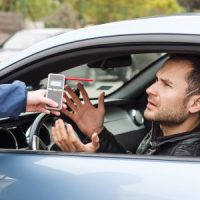Can Field Sobriety Test Results Be Used as Evidence Against You?

When you are pulled over on suspicion of driving under the influence (DUI), you might be asked to perform field sobriety tests (FSTs). Police use these tests to look for signs of impairment in order to justify an arrest. If you have recently been charged with DUI in New York, you might be wondering if your field sobriety test results can be used as evidence against you. At Mark I. Cohen, Esq., we aim to answer this question. Read on!
Understanding Field Sobriety Tests in New York
In New York, there are basically two main types of field sobriety tests: standardized and non-standardized. The National Highway Traffic Safety Administration (NHTSA) established three standardized field sobriety tests for assessing whether a person’s driving abilities may be impaired. Below is a look at these three standardized FSTs;
- The Walk-And-Turn Test (WAT)
The WAT test measures an individual’s ability to maintain balance, walk in a straight line, and follow directions. This test involves taking nine heel-to-toe steps along a straight line with your arms to your side. When you reach the endpoint, you must turn around using small steps and return to where you started. While performing this test, the officer will be trying to see if you fail to follow instructions, are having problems maintaining your balance, stop walking to regain balance, take the wrong number of steps, or fail to walk the line heel-to-toe.
- Horizontal Gaze Nystagmus Test (HGN)
The second standardized FST police administer to individuals they suspect of DUI is the Horizontal Gaze Nystagmus (HGN) test. This test involves the officer moving an object, such as a pen, slowly from side to side in front of your eyes. The purpose of this test is to spot involuntary jerking of the eyes as they move horizontally.
- One Leg Stand Test (OLS)
The last standardized field sobriety test the police use is the One-Leg Stand (OLS) test. In this test, you must stand on one leg and count for 30 seconds. During the test, the officer will look to see if you sway, use your arms to balance, hop, or put your foot down. Any of these clues may indicate intoxication.
When it comes to non-standardized field sobriety tests, examples include the alphabet test, counting backward, finger-to-nose test, and the hand pat test.
Can FST Results Be Used as Evidence Against You
Generally, non-standardized FST results cannot be used as evidence against you. The likelihood of the results of non-standardized FSTs being accepted as conclusive proof of DUI is minimal. In contrast, standardized FST results have a higher chance of being successfully used as evidence against you. However, these tests are not foolproof. Numerous factors can influence the results of standardized FTSs, including medical conditions, fatigue, and nervousness. A defense attorney who can show the potential for inaccuracies can help you challenge the results of standardized FSTs. For example, the results of the walk-and-turn test can be influenced by a person’s age, weight, or physical fitness.
Contact Us for Legal Help
If you’re facing DUI charges in New York, contact our NYC criminal defense attorney, Mark I. Cohen, to schedule a consultation and discuss your case.








